Now including Physics!
We are expanding our project to include the Department of Physics. We are collaborating with colleagues to includes Physics students and staff in our 2024-25 Mentoring Programme. We will also be developing a Physics outreach activity.
What is the project?
Success for Black Students is a King’s programme designed to support aspiring Black engineers and physicists at school and university.
Black students experience lower attainment in key engineering subjects of maths and physics compared to their white counterparts and are less likely to achieve a 2.1 or 1st class degree outcome. This contributes to subsequent under-representation in STEM careers, as highlighted by the Hamilton Commission Report, a report launched by Sir Lewis Hamilton which explores the barriers to the recruitment and progression of Black people within UK motorsport and STEM careers, which start in early life and in education.
This programme expands the Success for Black Engineers programme which was designed to support aspiring Black engineers at school and university. It was awarded funding in 2022 from the Royal Academy of Engineering's Diversity Impact Programme to address the unequal outcomes experienced by Black students. The project includes school outreach and tutoring, peer, academic and industry mentoring of undergraduate students, summer research placements, insight days and events.
Who is involved?
Jointly spearheaded by Professor Kawal Rhode and Dr Ernest Kamavuako, the project was developed in consultation with black postgraduate and undergraduate students in the School of Biomedical Engineering & Imaging Sciences (BMEIS). We work with staff and students in the Department of Engineering and in 2024-25 we are expanding to collaborate with the Department of Physics. External partner organisations Siemens Healthineers are facilitating site visits for students and providing mentors from industry. Ansys are supporting with events for students on our mentoring programme and summer placement stipends. We also have a number of industry mentors from other organisations.
Read more below about the committed project team of staff and students from across the two Faculties making this happen.
What are the anticipated outcomes?
The intermediate outcomes of the project are to increase black applicants to King’s undergraduate programmes, increase attainment and wellbeing and gain deeper insight into the needs of black engineering and physics students at King’s.
This project contributes to the King’s Access & Participation Plan goal to increase the representation of Black students to 11.5 percent, as well as supporting all black engineering and physics undergraduate students to achieve a 1st class degree outcome.
How will the project be evaluated?
Feedback on the project will be sought via questionnaires, focus groups and structured interviews. In addition, the project team will measure the following key performance indicators:
- Percentage of students in King’s STEM Tutoring Group that achieve a place for engineering or physics at a UK university.
- Percentage of students in the King’s STEM Tutoring Group that apply to King’s engineering or physics programmes and secure a place.
- Percentage of Black students in year 1 of King’s engineering and physics programmes.
- Percentage of Black engineering and physics students graduating with a 1st class degree at King's.
How does this link into local and institutional strategy?
This project is one of the BMEIS Race Equality Working Group priorities. It feeds into the School DDI Committee’s Action Plan by raising awareness of the additional challenges to minority groups in engineering and offering support to readdress the equity of the student experience. As well as addressing student attainment and diversity in undergraduate programmes, it also aims to contribute to increasing the diversity of postgraduate and academic staff at King’s.
This project also directly connects to King's Strategy 2026, Race Equality Charter (REC) Action Plan, Access & Participation (AP) Plan, and other KCL-wide Civic & Inclusive Education Programmes.
Project Team
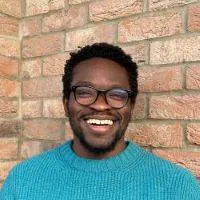
Abdoul Aziz Amadou
PhD student at King's and Research Scientist at Siemens Healthineers, School of Biomedical Engineering & Imaging Sciences
Project industry liaison and peer mentor
"I am passionate about this project as, coming from a developing nation, I encountered many hurdles in my educational journey. Helping other students overcome similar challenges and mentoring them means a lot to me, as I know how isolating and difficult it can be."
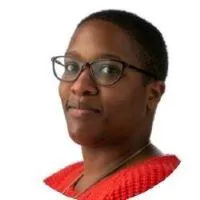
Deanne Naula
Community Engagement Officer for the Centre for Medical Engineering and Mithras Programme, School of Biomedical Engineering & Imaging Sciences
Member of outreach and evaluation workstream
“I am passionate about ensuring marginalised communities have a strong presence within the School, either as students and staff or by collaborating with local underserved communities. I am part of the project’s wellbeing team because i believe building a nurturing community is key to ensuring the retention and development of students and staff.”
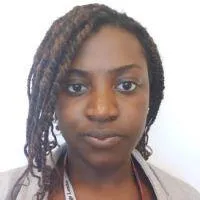
Elsa-Marie Otoo
PhD student and Teaching Fellow, School of Biomedical Engineering & Imaging Sciences
Member of outreach workstream and mentor
“When I was an undergrad in biomedical engineering at KCL 9 years ago, I was the only black student in my year, and I did not see any black lecturers or postdocs in the department. Sometimes you have to be a part of the change you want to see. Diversity can bring so much more to a field; it allows individuals to include unique aspects of their upbringings in an approach to solving a problem. All our experiences and interactions define our thoughts which allow us to think outside of a box. This project is a great opportunity to start bringing about these changes, for a department to be representative of the great city of London and a stepping stone in helping students at the starting point of their journey.”
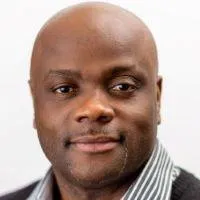
Dr Ernest Kamavuako
Senior Lecturer in Engineering, Department of Engineering
Project Co-lead
“I am passionate about this project because Diversity in human resources is an important asset, and this project translates how much we value EDI in our engineering programmes.”
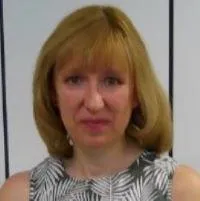
Karon Galvin
Operations Assistant (Facilities) and PA, School of Biomedical Engineering & Imaging Sciences
Minute taker and administrator for Success for Black Engineers Working Group from grant application submission – February 2023
“As part of the Race Equality Working Group, we were able to form a sub-group to apply for a grant from the RAE, Success for Black Engineers Project. It has been an honour to support both the application team and the Success for Black Engineers Project team.”
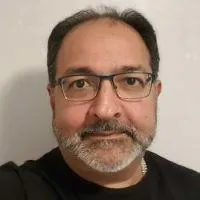
Professor Kawal Rhode
Professor of Biomedical Engineering, Head of Education, School of Biomedical Engineering & Imaging Sciences
Project Co-lead
“I am passionate about equality, diversity and inclusion because I firmly believe in helping others and creating a society where everyone can flourish.”
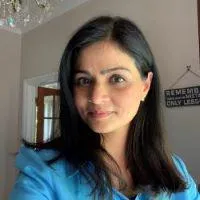
Dr Mandeep Gill Sagoo
Senior Lecturer in Anatomy
Lead for evaluation workstream and member of mentoring workstream
“I am delighted to be part of the Success of Black Engineers project that aims to reduce the attainment gap between Black engineers at the undergraduate level and their white counterparts. The project directly actions the key recommendations made by the Hamilton Commission Report (July 2021) in inspiration/engagement, accountability/measurement, and support/empowerment to enable success for Black Engineers. I am responsible for evaluating the impact of outreach, teaching and mentoring activities, identifying whether students recognise where and how they acquire knowledge and skills, and gathering information to improve future iterations. The mid-to-long-term outcomes involve processes identifying whether students are better equipped and have the skills needed to address the career and employability aspects.”

Ryan Satnarine
Trainee Medical Physicist at King's College Hospital NHS Foundation Trust and MSc student at King’s, School of Biomedical Engineering & Imaging Sciences
Member of peer mentoring workstream and mentor
“I’m passionate about the project because I want to improve the chances of success of Black people, like myself. When I was a Biomedical Engineering student, I was 1 of 2 Black people in the class and the only Black man, with no Black students in the years above when I started. I want to be able to help guide these new Black students such that they succeed, and help uplift other Black students, serving as role models that we so greatly need as we are so disadvantaged as a people.”
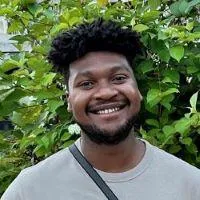
Shaheim Ogbomo-Harmitt
PhD Student, School of Biomedical Engineering & Imaging Sciences
Member of wellbeing workstream
“As a black engineering PhD student who has experienced the challenges of navigating the engineering field, I know firsthand the importance of having support and resources to succeed. Being involved in a project that aims to help other black engineering students is an opportunity to give back and create a more inclusive and equitable future for those who will follow in our footsteps.”
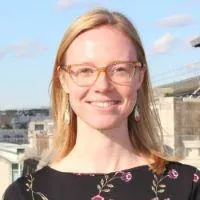
Sophie Rust
EDI Coordinator, Success for Black Engineers
“I am excited to be part of this pioneering project, working with such fantastic staff and students across the two faculties. I was drawn to this project as I think it has the potential to be a blueprint for other areas of King’s and other universities to follow in terms of widening participation and closing the attainment gap.”
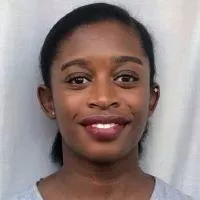
Tiarna Lee
PhD student, School of Biomedical Engineering & Imaging Sciences
Member of outreach workstream and mentor
“I'm passionate about taking part in the project as I'd like to be able to inspire and support a new generation of engineers and scientists from underrepresented groups. I'd like to give the students the opportunity to see themselves in STEM careers.”
Our Partners